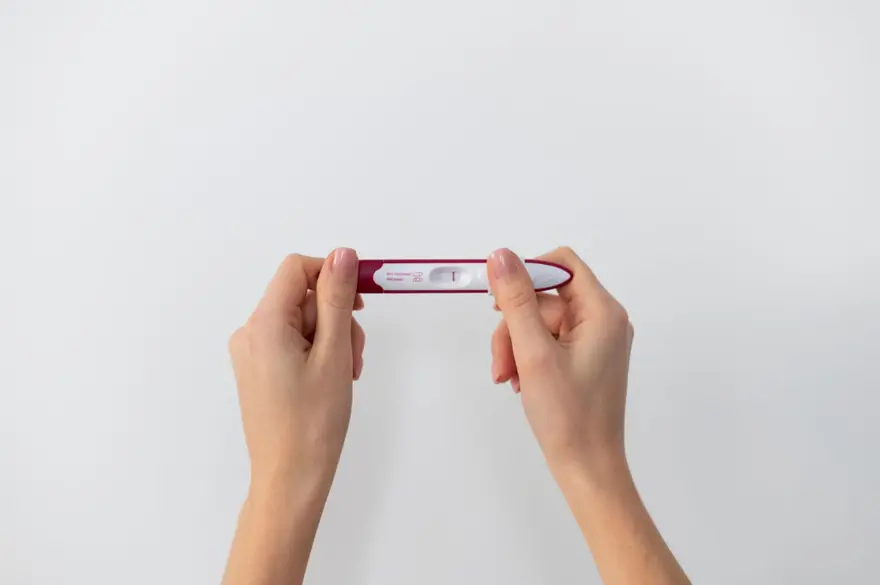Preventive Healthcare
Vitamin B12 Deficiency: What It Means to Have Low Levels of Vitamin B12
6602 Views
0

What Is Vitamin B12 Deficiency?
Vitamin B12 deficiency is a treatable condition that occurs when you do not consume enough of this vitamin in your diet or when your body cannot absorb it effectively. Vitamin B12 is one of the most essential nutrients in the body as it helps create red blood cells (RBCs) and DNA, which are your cells' building blocks.
If left untreated, vitamin B12 deficiency can cause numerous physical, neurological and psychological symptoms.
What Is Vitamin B12?
Vitamin B12 is a water-soluble vitamin vital in creating genetic material (DNA) in your cells. It is the nutrient that helps keep your nerves and blood cells healthy. As your body cannot make its vitamin B12, it is absorbed from your food and drinks.
A diet rich in animal products like milk, eggs, meat and other dairy products will also be high in vitamin B12. The average adult needs about 2.4 micrograms of vitamin B12 daily, but pregnant or breastfeeding mothers need a little more. The amount of vitamin B12 needed by children and babies varies based on age.
How Does My Body Absorb Vitamin B12?
The absorption of vitamin B12 in the body relies on two processes:
- The first step includes the hydrochloric acid in your stomach, breaking down the food you eat and extracting vitamin B12 from it.
- Next, vitamin b12 combines with a protein your stomach makes, called the intrinsic factor. This protein helps vitamin B12 get absorbed into your digestive system.
In rare cases, your body may not make the needed intrinsic factor because vitamin B12 is not efficiently absorbed into your digestive system. This condition is known as pernicious anaemia.
What Is Vitamin B12 Deficiency Anaemia?
Vitamin B12 deficiency anaemia occurs when your body does not produce enough healthy RBCs because of a lack of vitamin B12, as it is one of the essential nutrients that help produce RBCs.
You can also have a deficiency of vitamin B12 without anaemia if you do not have a diet rich in vitamin B12 sources.
Who Does Vitamin B12 Deficiency Affect?
While a vitamin B12 deficiency can occur at any age, it is more common among individuals 60 years or older, which is why vitamin B12 deficiency is also known as a disease of the elderly.
How Common Is Vitamin B12 Deficiency?
Generally, 1.5 to 15% of the population has a vitamin B12 deficiency. However, this amount varies based on the age of the individual. Here is a breakdown of the prevalence of vitamin B12 deficiency according to age:
- 20 to 39 years old: at least 3%
- 40 to 59 years old: at least 4%
- 60 years and older: at least 6%
What Causes Vitamin B12 Deficiency?
The most typical cause of vitamin B12 deficiency is not including enough quality sources of vitamin B12 in your diet. Another reason could be your body's inability to absorb the vitamin B12 you consume. The body's ability to absorb vitamin B12 also declines as you age, making elderly people more susceptible to vitamin B12 deficiency.
Vitamin B12 deficiency causes include the following:
- Individuals who do not consume enough natural sources of vitamin B12 or fortified food that contains vitamin B12.
- Pernicious anaemia is a rare medical condition in which individuals cannot make an intrinsic factor, a protein your stomach produces that helps your body absorb vitamin B12.
- Gastritis is an inflammation of the stomach lining that is also considered one of the vitamin B12 deficiency causes, as your stomach does not have enough hydrochloric acid to break down your food and extract vitamin B12.
- Individuals who have previously had gastrointestinal surgery, like a gastric bypass, may have difficulties absorbing vitamin B12.
- Crohn's disease and celiac disease prevent your body from fully absorbing vitamin B12.
What Are the Symptoms of Vitamin B12 Deficiency?
Vitamin B12 deficiency usually starts developing slowly and gets worse over time. Many individuals may not even show symptoms of low vitamin B12, although the levels of this nutrient may not be adequate in the body.
Physical symptoms of vitamin B12 diseases include the following:
- Fatigue (Feeling very weak or tired)
- Nausea, diarrhoea, or vomiting
- Weight loss
- Loss of appetite
- Yellowish skin
Vitamin B12 deficiency neurological symptoms include the following:
- Tingling or numbness in your hands and feet
- Problems with vision
- Getting confused easily
Most neurological problems that develop due to a lack of vitamin B12 may not be reversible. Hence, keeping track of your vitamin B12 levels and including rich nutrient sources in your diet is essential.
Psychological symptoms of low vitamin B12 include the following:
- Depression
- Irritability
- Experiencing a change in the way you usually behave or feel
How Is Vitamin B12 Deficiency Diagnosed?
As symptoms of low vitamin B12 may or may not be visible in an individual, or you may experience symptoms similar to other nutritional deficiencies, a vitamin B12 deficiency disease may go undiagnosed.
However, when you do a routine blood test, your levels of vitamin B12 are also checked. These tests include a complete blood count (CBC) or a vitamin B12 blood test level. You may be diagnosed with a vitamin B12 deficiency if your vitamin B12 levels are lower than 150 per mL.
How Is Vitamin B12 Deficiency Treated?
The most obvious solution to low levels of vitamin B12 is including more quality sources of vitamin B12 in your diet. Your healthcare provider may suggest cyanocobalamin, a manufactured form of vitamin B12.
Based on the cause of your vitamin B12 deficiency, you need to undergo vitamin B12 deficiency treatment till your levels are back to normal or for the rest of your life.
Other options for vitamin B12 deficiency treatment include the below:
- Oral medication with vitamin B12 supplements
- An intramuscular shot of vitamin B12
- A vitamin B12 nasal spray or nasal gel
What Are the Risk Factors for Vitamin B12 Deficiency?
There are numerous risk factors related to vitamin B12 deficiency. If you have one or more of the following conditions, you may be at risk of developing a vitamin B12 deficiency.
- As the absorption rate of vitamin B12 reduces, older adults are more at risk of developing vitamin B12 deficiency as they cannot fully absorb vitamin B12 from their diet.
- Digestive diseases like Crohn's and celiac disease make it difficult for your body to absorb vitamin B12
- As most vitamin B12 natural sources are from animal products like dairy and meat, people who follow a vegan or vegetarian diet may display symptoms of low vitamin B12.
- Some medicines like metformin (a drug used to manage diabetes), proton pump inhibitors (Used to treat peptic ulcers and GERD), histamine H2 blockers that are used to reduce the amount of acid produced in your stomach or oral birth control pills can cause low levels of vitamin B12.
- Chronic alcoholism can damage your digestive system and cause vitamin B12 deficiency.
How Can I Prevent Vitamin B12 Deficiency?
Consuming food and drinks high in vitamin B12 helps prevent vitamin B12 deficiency. Good sources of vitamin B12 include the following:
- Animal products: Fish, poultry, milk, eggs, red meat and other dairy products contain high amounts of vitamin B12.
- Fortified Foods: As many people in India follow a vegan or vegetarian diet, certain foods have been fortified with vitamins and nutrients they do not naturally contain. These foods include nutritional yeast, certain breakfast cereals, breads and plant-based milks. Check the food labels of such fortified foods to understand if they have added vitamin B12.
- Dietary Supplements: Many over-the-counter multivitamins include vitamin B12 and others that only contain vitamin 12. Talk to your healthcare provider to find out if you need to supplement with these products and which supplement would give you the best results.
- Manage digestive issues: As digestive diseases like Crohn's or celiac disease are one of the main reasons for vitamin B12 deficiency, it is best to follow your healthcare provider's instructions to stay healthy and best manage your digestive issues.
- Avoid alcohol: Frequent consumption of alcohol leads to damage to your digestive system, which also hampers the absorption of vitamin B12.
What Is the Prognosis (Outlook) for Vitamin B12 Deficiency?
The prognosis for individuals with vitamin B12 deficiency depends on the stage of B12 deficiency and how early you have been able to detect the condition. If you have caught your vitamin B12 deficiency in the early stages, you can get rid of most of the symptoms with treatment. Depending on the cause of your vitamin B12 deficiency, you may have to take the medicines for a short while till your vitamin B12 levels are normal or for the rest of your life.
Vitamin B12 deficiency, when left untreated, causes lasting side effects that affect your nervous system and brain. Some of the more severe effects of vitamin B12 include the following:
- Peripheral neuropathy
- Paralysis
- Degeneration of the spinal cord
- Erectile dysfunction
- Depression
- Bowel incontinence and urinary incontinence
- Paranoia and delusions
Can a Vitamin B12 Deficiency Cause Death?
When vitamin B12 deficiency is left untreated, it can cause severe neurological damage that puts you at higher risk of mortality. Conditions like pernicious anaemia, a decreased production of red blood cells due to the lack of vitamin B12, can cause permanent neurological damage that can ultimately lead to death if allowed to reach the later stages of B12 deficiency.
When Should I See My Healthcare Provider?
Suppose you experience any of the abovementioned low vitamin B12 symptoms or come under the at-risk categories mentioned above. In that case, it is best to visit your healthcare provider to determine if you need to measure your vitamin B12 levels. Suppose you have already been diagnosed with vitamin B12 deficiency and have started to experience new symptoms of vitamin B12 deficiency, it is best to contact your healthcare provider immediately and find out how to remedy the situation.
Conclusion
Vitamin B12 is one of the most essential vitamins needed for a healthy body, so you must ensure you include rich nutrient sources in your diet. The answer to how long to recover from vitamin B12 deficiency depends on how early you can diagnose the condition and get the appropriate treatment. Getting regular blood and other diagnostic tests like CBC done helps in the early detection of this condition.
Metropolis Labs provides various diagnostic tests to ensure you keep up with your health effectively. Preventive healthcare packages based on your age and gender are also available. Contact our experts today to book an appointment.























 WhatsApp
WhatsApp
